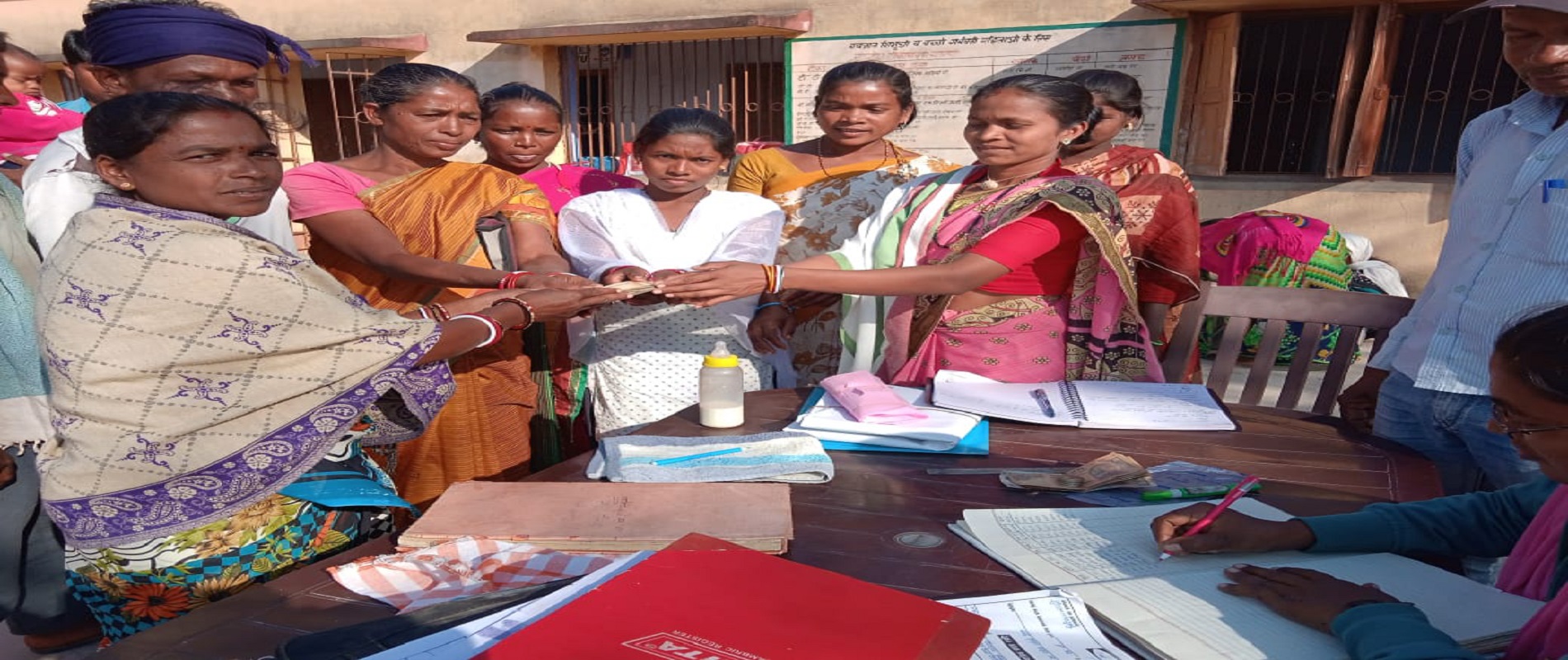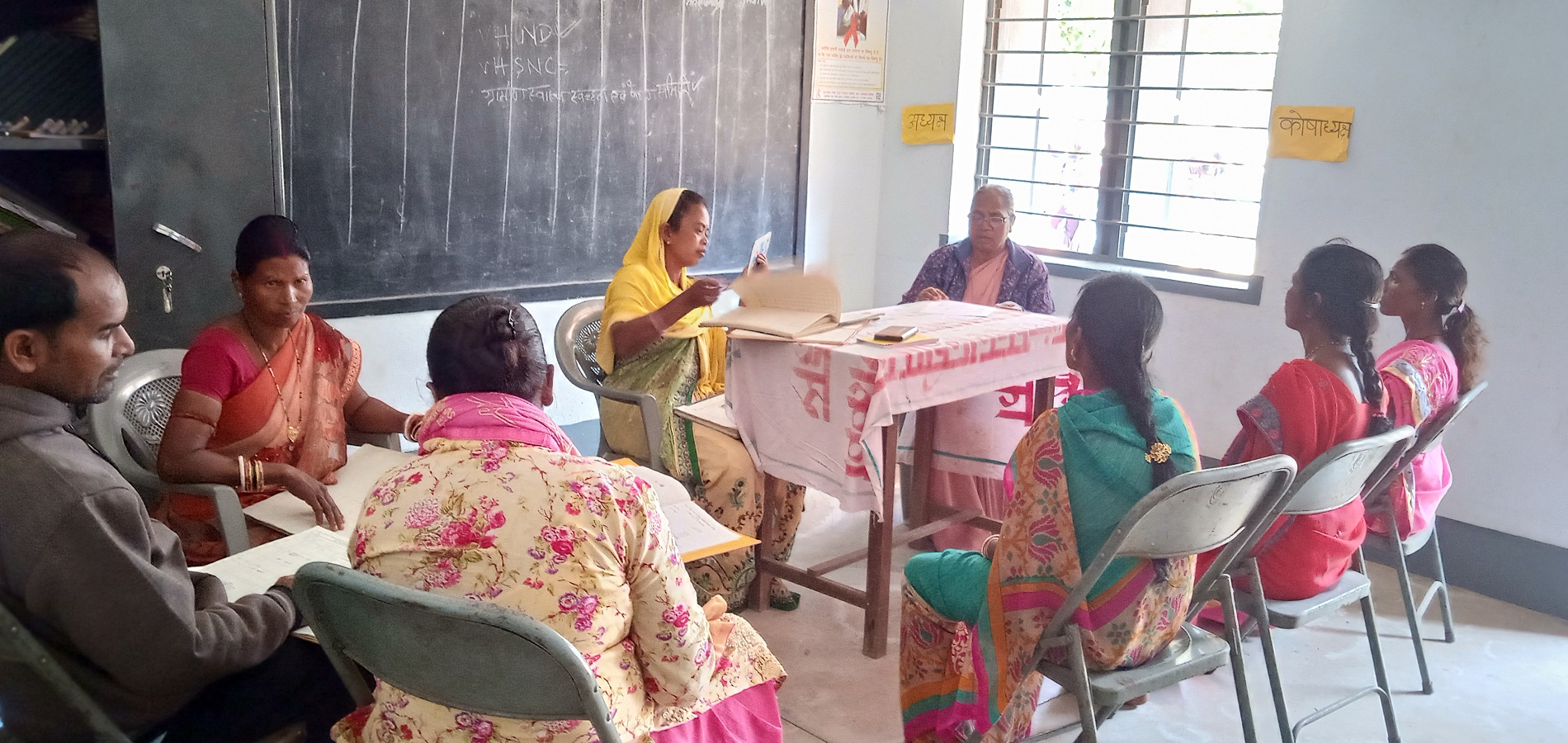Didi Bank
The initiation of Cooperative formation started in the year 2007. The first SHG Cooperative with 50 SHGs formed named as ‘Jyotirmayee Mahila Evam Sakh Swalambi Sahakari Samity (Jyotirmayee independent women credit Cooperative) formed in the year 2007. Slowly, one SHG to another become members of SHG Cooperative, thus forming 12 SHG Cooperatives.
Micro finance with many challenges entered into the blood of women, who requires money for providing a better life to their families. The idea has turned out to be an effective strategy for social and economic enhancement/participation of poor women in living a happy life. Group lending minimises transaction cost and at the same time the members of a group can avail small loans through that group. The chances of misutilisation are minimal and there are assured repayment because of peer monitoring by the group.
For the SHG members, the system has been found beneficial because of minimal procedural formalities, access to institutional credit without collateral offering, full autonomy in the selection of activity, and the availability of thrift for meeting urgent needs. The skill needed for filling the application forms and the absence of procedural formalities have made the programme customer-friendly. Besides, the flexible repayment schedule enables them to repay as and when it is convenient. The group will see to it that prompt repayment is made, as they are likely to get repeat loans. The micro-sized, supplementary income-generating activities pursued by the members defy the conventional standards of unit cost and unit size prescribed by banks and government departments. The smaller unit size allows women to pursue the activities in their spare time and contribute to the family’s income. At present 8344 members of 607 SHGs are engaged in small income generating activities.
Economic Transformation among women
Atal Baa Mahila Samity, Kuchai (15 members) prepare action plan on clean village campaign. The members took initiative and tapped toilet construction scheme. This village is having 250 families. Gram Sabha meeting held where decision was taking that instead of mason from other village, mason within the village would support in construction and SHG members would also support them. Government has sanctioned fund in Mukhiya. Village Sanitation Committee 155 toilets progress
Public Distribution Centers running by 3 SHGs (Adivasi Mahila Vikas Samity, Barabandi), Suraj Mahila Mandal, Kundiyamarcha and Adarsh Swan Sahayata Samity, Maranghatu under Kuchai Cooperative are effective in providing ration on time. Around 600 families are getting ration on time (Rice -35 kg, Sugar -2 kg, Salt and Kirosene Oil 2 liter.
Earlier families had to travel 20 kms to and fro for getting ration which was very hard job for them to carry the loads on bicycle in bad roads. They have overcome this challenge and SHGs members also feels that they are providing their service for the welfare of the people in the area.
Saraswati Cooperative at Chakuliya have campaign on preventive masures on Malaria, they had meeting with Block Medical Officers on preventive measures on Malaria. Members had a awareness drive on mosquito net.
Jamshedpur Cooperative - Women attending Gram Sabha meeting are beneficial because problems from grassroot level being traced to overcome. Women being more responsible for sending their children to School.
Kalyani Cooperative at Jamshedpur rescued a girl who was staying with her relatives. They brought this girl with a motive to get her admission in school. Later on the girl was engaged in domestic work. As meeting was held nearby to her house, the girl shared the entire situation in Cooperative. The members of Cooperative had a meeting with family members where she lived and finally girl was sent back to her home.
Community action
The Cooperative at Manoharpur, Ichagrah and Toklo work together with SHGs at respective places address issues that affect not only their own members, but others in the larger community. These involved: improving community services education, health care, village road), trying to stop alcohol sale and consumption (31%). They also took initiative to spread awareness by participating in campaigns like pulse polio, literacy and immunization. The most common single type of action taken up by SHGs is the attempt to close down local liquor outlets. Alcoholism – and the accompanying problems of domestic violence from men, the drain on household finances, impaired health – is aspects which in so many villages we found prompts perhaps the most anger amongst women, but also despair. Dealing with this issue is a major struggle which pits women not only against a behavioural syndrome, but also against institutional and business elements which have a vested interest in continuing to sell alcohol – and make money out of it .

